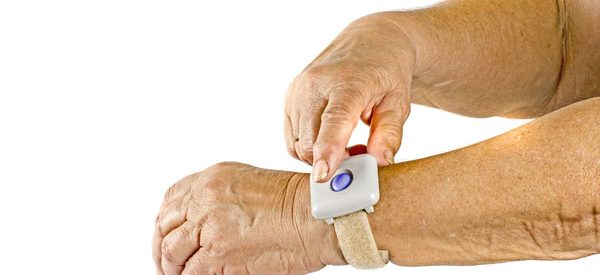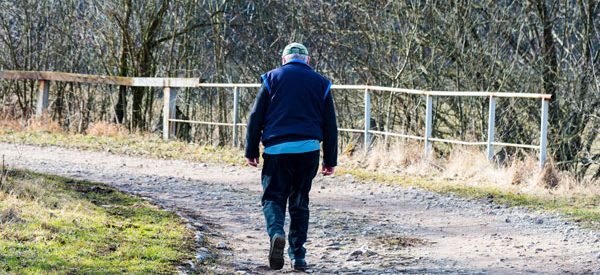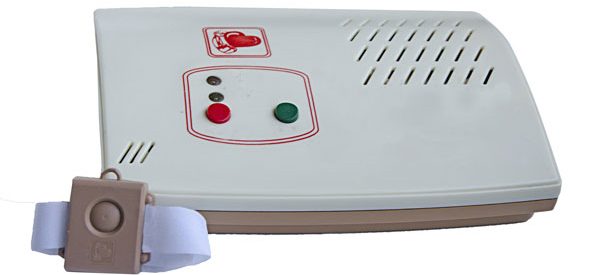
Best Medical Alert Systems with GPS Tracking for Seniors
Are you considering a medical alert system to get access to emergency assistance with just a push of a button?
Do you have a loved one you fear may wander or be alone in a medical emergency?
You should know that a medical alert system offers quick access to emergency services as well as other features including fall detection and GPS tracking.
These extra measures provide you with additional layers of protection to make you feel safe and secure at all times.
Seniors can experience different situations requiring emergency support such as a fall, an accident, or illness. Others may get lost or wander as a result of their medical condition.
Thus, a medical alert system with more comprehensive features like fall detection and GPS tracking can be valuable in making sure seniors receive the HELP they need.
To compare medical alert systems available in your area, fill out the form and receive FREE and NO OBLIGATION quotes!
Medical alert systems with GPS tracking

As you may already know, a medical alert system has a wearable panic button which a user can push to summon emergency assistance.
When the contact center receives an alert, staff trained in handling emergency situations respond to the call by speaking with the user through the built-in speakerphone.
They can help by doing the following:
- If the user needs medical support, an ambulance is dispatched within seconds of the call.
- They can also contact the police or fire department, as appropriate.
- For non-emergency situations, they can also contact a family member or caregiver to give you aid.
The staff stays on the line until help arrives to provide continuous support.
Fall detection for extra protection
Statistics show that majority of seniors who seek emergency room assistance have injuries related to falls. Research also shows that seniors 65 and older will experience a fall once in their lifetime.
When a senior suffers a fall, it is quite possible that he or she will be unable to press the emergency button to ask for help. This is where fall detection technology can come in very handy.
With fall detection, an alert is automatically sent to the monitoring center if the system detects a possible fall. Several parameters are used to differentiate a fall from a normal activity such as sitting down or lying down.
If your medical alert system has fall detection, it will notify the monitoring center that the user may have fallen, even if he doesn’t push the emergency button.
Why is fall detection technology critical to a medical alert system?
There may be times when a senior can’t push the emergency button after falling. When this happens, a medical alert system with fall detection can identify a fall and send an alert to the monitoring center.
If the device has GPS tracking, the contact center can also quickly locate the user if he or she is outside the home.
You can regain your confidence and peace of mind if you know you always have a reliable medical alert system on hand in any emergency.
The importance of GPS tracking for medical alert systems
GPS technology has really changed the way that people connect with the world at large. Medical alert systems have taken advantage of this technology to deliver a higher level of protection to seniors.
A medical alert system equipped with GPS tracking allows trained operators to locate a user that may have fallen or needs emergency assistance. While they have the information of every customer’s home address, a senior may be outside the home at the time of an accident.
Many seniors are still quite active and busy. They don’t want to give up their independence or doing the things they like. But with aging comes many health risks, among them the risk of tripping or falling.
If this is the case and the senior is unable to speak or provide an exact location, GPS tracking will make it easy and fast for the monitoring center to provide support. In life-threatening situations, every second is critical. Hence, no time is lost when you ask for help in a medical situation or otherwise.
Medical alert systems with fall detection and GPS tracking are the most advanced
and reliable security devices that active seniors should not be without.
Who should wear a medical alert system with GPS?
A standard medical alert system offers protection for seniors when they are at home. They can push the panic button to ask for help in a personal or medical emergency.
For individuals who are often at home or rarely go out without a companion, a home medical alert system could be adequate security. But what if you sometimes run errands or take a walk for leisure or exercise?
More active seniors need additional protection for the times they are out and about. Medical alert systems with GPS technology will pinpoint their location for that crucial moment when help is badly needed, fast!
Medical alert systems with GPS are for roaming so that you can ask for help no matter where you are.
Who should wear a medical alert system with GPS tracking?
- Medical alert systems with GPS tracking are recommended for:
- Active seniors living alone
- Older adults aged 50 to 65 who have a medical condition that puts them at risk for falls or accidents
- Seniors with Dementia or Alzheimer’s’ who are at risk for wandering
- Seniors who have speech difficulties
- Any user that wants an added layer of protection from their medical alert system
The assurance that a contact center is only a press of a button away is very reassuring to a senior and his family members. This also gives seniors the confidence to live active lifestyles without fear or insecurity.
Because being active for as long as possible is good for our physical and mental health, medical alert systems with GPS provide wonderful support to this end.
The risk of wandering: Why GPS tracking is important for seniors

Wandering is a huge safety concern for seniors with dementia or Alzheimer’s. It can be a very stressful, if not traumatic, experience for the senior and the caregivers as well.
The Alzheimer’s Association reports that 6 in 10 people with dementia will wander and if they are not found within 24 hours, many of them could get hurt seriously, even die.
Some seniors have wandered off at night without appropriate clothing in the cold of winter.
Toronto’s 911 Service is said to receive from 5-7 calls a day regarding elderly persons with dementia or related illnesses that go missing.
The feeling of being confined or confusion can lead a senior to wander. For this reason, a medical alert system with GPS tracking can be invaluable in locating them quickly before they are harmed.
A reliable medical alert system with GPS technology can facilitate the quick and safe return of a loved one.
Consider getting the right device for your loved one today by requesting your FREE and NO COMMITMENT quotes.
How do medical alert systems with GPS tracking work?
There are many medical alert system companies that offer advanced systems with GPS tracking. These systems are wireless or cellular systems and are often called mobile or on-the-go plans.
Medical alert systems also use GPS satellites that are used by GPS systems in our cars. They are connected to a network of satellites that provide exact locations within seconds.
As you can imagine, this tracking ability is very critical to a senior who is wandering or maybe injured in an unknown location.
When a monitoring center receives a fall alert or if the user pushes the panic button, an agent quickly responds through the voice system. If unable to speak to the user, the agent quickly looks up the location by GPS and notifies the appropriate assistance team.
All of these actions happen within 20 to 40 seconds, not minutes, reducing the risk for the user and thereby preventing further harm or injury.
What to look for when shopping for a medical alert system with GPS
Because there are so many medical alert systems available, it can be quite overwhelming to determine the best system for you to buy.
It is important to look at many options before you make your choice.
- Transparent Pricing
You will need to be clear about the cost of the system monthly and one-time payments or extras such as installation or activation fees.
- Waterproof or water-resistant.
Because most accidents or falls occur in the bathroom, make sure that you can wear the device in the bath or tub or that it can withstand being wet from the rain.
- Long Battery life
Check the length of the battery’s life. 24 hours or longer is best to make sure your device works during the day and can be charged while you are resting at night.
- Length of contract
Providers differ when it comes to monitoring contracts. Some offer month-to-month contracts with no long-term commitment while others require 24 to 36 months locked-in periods. Think about what you are comfortable with and compare service features before making your choice.
- Monitoring center
It is important to know who is monitoring your medical alert system. Most providers have 24-hour monitoring centers with non-stop support. Some of them have their own monitoring centers while others have partners. CSAA 5- diamond certified (Central Station Alarm Association International) monitoring centers are the best as well as UL-certified monitoring centers.
- Comfort
Since you will be wearing the device at home and outside the home, you need to make sure that you will be comfortable wearing it. Most systems have panic pendant buttons while others can be clipped to a belt or worn on the wrist. You may also want to see if you like the appearance or design of the device.
Shopping for your medical alert system will start with checking prices to compare and save money.
Fill out the form below to receive NO-OBLIGATION QUOTES from our reliable partners
to choose one that is suited to your needs.
Top Medical Alert Systems with GPS Monitoring
in Canada

A medical emergency can occur at any time. Fortunately, we can now rely on wireless medical alert systems for seniors to keep our loved ones safe and secure.
These devices connect the user to efficient and reliable monitoring centers who are trained to handle all kinds of emergencies.
Compare wearable panic buttons with GPS tracking for your ultimate safety and protection so you never have to be afraid of being alone.
Below you will find select medical alert systems with GPS monitoring in the country.
| Philips Lifeline GoSafe 2 |
This is the latest product offering from Philips Lifeline mobile alert systems. It is one single equipment that uses 5 location technologies (GPS, Wifi, audio beaconing, etc.) to locate a user. It is also equipped with fall detection and a 2-way voice communication system. The battery lasts 2-3 days after charging.
It comes in an easy-to-wear and lightweight pendant which is also waterproof.
You need to pay $99 for the equipment fee and $49.95 for monitoring services. The company offers self-installation or technician installation.
| Global Security Numera Libris |
The security company Global Security offers Numera Libris, a medical alert system that has GPS tracking and fall detection.
It has a water-resistant button with integrated communication system. When you buy the Numera Libris, you can also have access to a powerful platform, EverThere, which helps caregives manage your health information.
Their GSM Package (wireless) costs $99.00 for activation and $379.95 for the device fee. It costs $79 to get the panic button.
Customers must sign-up for a locked-in period of 36 months for monitoring services. While it is costly compared to other medical alert devices, the company offers superior monitoring services with its UL certified monitoring centers and has the most advanced fall detection system in the industry.
| TELUS Livingwell Companion Go |
TELUS Health Systems offer the TELUS Livingwell Companion Go which aims to let seniors live independently. Their system has automatic fall detection and built-in GPS tracking technology. Users also get access to 24/7 emergency support. Their devices also have 2-way communication systems.
TELUS has Canada-wide coverage and does not require a cellphone plan.
When a senior pushes the emergency button, the operator can summon emergency services or notify family members.
The company does not require upfront fees or long-term contracts. The cost of the service is $55 a month.
| AlarmGuard Personal Emergency Response System |
AlarmGuard offers senior protection services through its Personal Emergency Response System (PERS).
Their system works anywhere in Canada and does not require a landline. Their system uses GPS and cellular technology to determine location and has an optional fall detection feature.
Their device has a 36-hour battery and can be fully charged within 4 hours. They are also waterproof and can be used in the shower or bath.
The panic button can be worn as a bracelet, clipped to a belt, or as a necklace.
While the company claims to have no upfront fees, their monthly rates are not available. You need to contact the company to get a direct quote.
| Bell Canada Medical Alert (On the Go) |
Bell Canada offers an on-the-go medical alert system with built-in GPS location tracking. It also has fall detection capabilities.
Equipped with 2-way voice technology, a trained operator assesses your emergency situation and contacts your loved ones or emergency services.
The monthly fee is $57.99 with a 6-month locked in period and an installation fee of $99.
For just the price of your daily cup of coffee, you can get back the freedom to live your life independently and with new-found confidence.
Compare free and no-obligation quotes today by filling out the form on this page from the best medical alert companies in your area.
Give your loved one the gift of a medical alert system
Many of us have a loved one who wants to continue to live independently and not be a burden to anyone. It is natural, however, for family to be concerned about a senior’s welfare and safety.
Giving a loved one a medical alert system is one way for caregivers and family members to stay connected with a senior and not worry so much.
You won’t have to check in with them so often, allowing them some privacy and freedom. The gift of a medical alert system can be a great idea for elderly relatives living at home unassisted. This extra protection and security can’t hurt!
But before you give your parent or grandparent a medical alert system, it is advisable to talk to them first. Discuss the benefits of using an emergency panic button and explain how it works. Find out what their preferences are and discuss any objections they may have.
Doing this is critical before it is necessary for them to wear the device in order for it to do its work.
A medical alert system is a personal choice and wearing one requires willingness and desire to do so.
Are you planning on getting a medical alert system with GPS tracking for a family member? You can get FREE quotes using our short online form. It is fast and no obligation!
Get the best medical alert with GPS tracking
Do not let the price of a medical alert system with GPS monitoring stop you from enjoying the rest of your life!
Get FREE AND NO OBLIGATION quotes today to compare and choose the right system that meets your needs.
Our partners offer reliable and tested personal emergency response systems equipped with fall detection and GPS technologies for ultimate protection and safety.
Wherever you are in Canada, our partners provide reliable personal security systems based on your needs.
Fill out the form below and get connected to the best medical alert systems available in your area.
Remember, your safety and peace of mind are important so don’t delay!
Comments are closed.

Copyright© 2024 Compare Home Quotes.
Oolong Media





